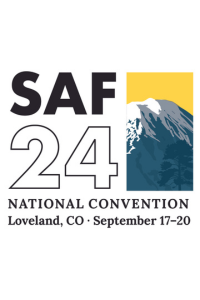Back
Science Flashes
International Forestry
Navigating the Complexities of Tropical Timber Trade: Sustainability, Naming Conventions, and Global Practices
Wednesday, September 18, 2024
4:10 PM – 4:18 PM MST
Location: Embassy Suites, Snowberry

Mandira Pokharel, n/a
Graduate Teaching Assistant
SUNY-ESF
Syracuse, New York, United States
Speaker(s)
Explore the pivotal role of naming conventions in the sustainability of the tropical timber trade, alongside the impact of legal frameworks and emerging technologies. This presentation will offer insights into enhancing traceability, ensuring conservation, and supporting sustainable practices within the global timber market.
Learning Objectives:
- Upon completion, participants will be able to demonstrate an understanding of the complex sustainability dilemmas facing the tropical timber trade, emphasizing the role of illegal logging and exploitative harvesting.
- Upon completion, participants will be able to explain the significance of generic naming practices in the trade of tropical timber and their impact on the conservation status and biodiversity of species, highlighting the cases of Apitong, Meranti, Ipe, Mahogany, and Acajou D'afrique.
- Upon completion, participants will be able to identify the major conservation efforts and legislative measures aimed at curbing the demand for unsustainably sourced tropical timbers, including the Lacey Act, EU's Due Diligence Regulation, and other international laws; establish the necessity for interventions on the supply side of the tropical timber trade, considering the roles and responsibilities of supplier nations in promoting sustainable forest management and ethical trade practices; and outline the potential of emerging technologies and management tools, such as forest certification, carbon trading, and blockchain for enhancing traceability and sustainability in the timber supply chain.

